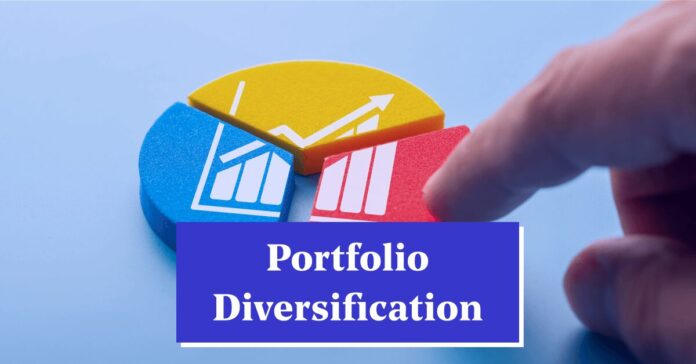Embarking on the journey into the retail market as a novice can be both exhilarating and daunting. The financial markets are vast oceans of opportunity, teeming with potential for growth, learning, and, of course, earning. However, navigating these waters requires more than just enthusiasm; it demands knowledge, strategy, and a keen understanding of the market dynamics. This comprehensive guide aims to equip beginners with insider tips and a solid foundation to confidently step into the financial arena.
Understanding the Market Landscape

The investment landscape is a complex ecosystem comprising various instruments, participants, and mechanisms. Before diving in, it’s crucial to grasp the basic structure of the market, including the different types of assets available (such as stocks, bonds, and derivatives), and the role of exchanges, brokers, and regulatory bodies. This foundational knowledge will not only help you make informed decisions but also enable you to understand the market’s reactions to different stimuli.
Delving deeper, it’s essential to recognize the significance of financial arena indicators and analysis tools. Entities like Invesus are pivotal in providing insights and forecasts that can guide investors through the intricacies of market trends and investment strategies. Furthermore, understanding the global economic factors that influence market movements, such as interest rates, inflation, and geopolitical events, is crucial for a comprehensive market perspective.
Setting Clear Objectives
Before initiating any financial arena activity, it’s imperative to define your goals. Are you looking for short-term gains or are you in it for the long haul? Your objectives will significantly influence your approach, the assets you choose to engage with, and the strategies you employ. It’s also essential to assess your risk tolerance and ensure that your market activities align with your broader financial plan.
Education is Key

The significance of continuous learning cannot be overstressed in the market domain. The landscape is perpetually evolving, with new instruments, technologies, and regulations emerging regularly. Staying informed through reputable financial news sources, books, and courses will not only enhance your understanding but also sharpen your decision-making skills. Moreover, learning from seasoned financial arena participants can provide invaluable insights into effective strategies and common pitfalls to avoid.
Developing a Strategy
Entering the market without a well-thought-out strategy is akin to setting sail without a compass. Your strategy should encompass your entry and exit points, criteria for selecting assets, and risk management techniques. It’s advisable to start with simpler, more straightforward strategies and gradually explore more complex ones as you gain experience and confidence.
Risk Management

Risk management is the linchpin of successful market participation. It involves identifying potential risks, assessing their impact, and implementing measures to mitigate them. This could include diversifying your portfolio, setting stop-loss orders, and only allocating a portion of your capital to riskier ventures. Remember, the goal is not to eliminate risk but to manage it effectively.
The Psychological Aspect
The psychological challenges of financial arena participation are often underestimated. The emotional rollercoaster of market fluctuations can lead to impulsive decisions driven by fear or greed, deviating from rational, strategy-based actions. Developing emotional discipline and patience is crucial. It’s also beneficial to maintain a supportive network of fellow participants who can offer advice, share experiences, and provide moral support during challenging times.
Choosing the Right Tools and Platforms
The tools and platforms you choose can significantly impact your market experience. From brokerage accounts to trading platforms and analytical tools, it’s important to select options that align with your objectives, strategy, and level of expertise. Look for platforms that offer robust security, user-friendly interfaces, and comprehensive educational resources.
Keeping Tabs on Performance
Regularly monitoring your financial arena activities allows you to evaluate your performance, learn from your successes and mistakes, and adjust your strategy as needed. This includes not just tracking your financial gains or losses but also reviewing the decisions you made and their outcomes. Keeping a detailed record can be incredibly insightful for honing your approach over time.
Compliance and Ethics

Adhering to legal and ethical standards is paramount in the financial arena. This includes understanding and complying with the regulations that govern market activities, such as insider trading laws and disclosure requirements. Ethical participation not only safeguards you against legal repercussions but also contributes to the integrity and fairness of the market as a whole.
Patience and Perseverance
The journey of a financial arena participant is seldom smooth and often longer than anticipated. It’s important to set realistic expectations and understand that setbacks are part of the learning process. Patience and perseverance, coupled with a willingness to learn from every experience, are key traits that can contribute to long-term success in the market.
Networking and Community Involvement
Engaging with a community of like-minded individuals can provide a wealth of benefits, from sharing knowledge and strategies to offering support during challenging times. Participating in forums, attending seminars, and joining local investment clubs are excellent ways to connect with other market enthusiasts and broaden your perspective.
Embracing Technology
Technological advancements have transformed the financial arena, making it more accessible and providing participants with powerful tools for analysis, execution, and risk management. Embracing technology, from algorithmic strategies to artificial intelligence and blockchain, can enhance your efficiency and effectiveness in the market.
Continual Adaptation

The only constant in the market is change. Successful participants are those who remain adaptable, continuously refining their strategies to align with evolving market conditions, regulatory landscapes, and technological advancements. Being open to change and willing to embrace new ideas and approaches is crucial for sustained success.
Conclusion
Entering the financial arena as a novice is an adventure filled with opportunities and challenges. By arming yourself with knowledge, setting clear objectives, developing a sound strategy, and managing risks effectively, you can navigate the market with confidence. Remember, the journey is as much about the learning and growth you experience along the way as it is about financial gains. With patience, perseverance, and a commitment to continuous improvement, you can evolve into a savvy and successful market participant.









